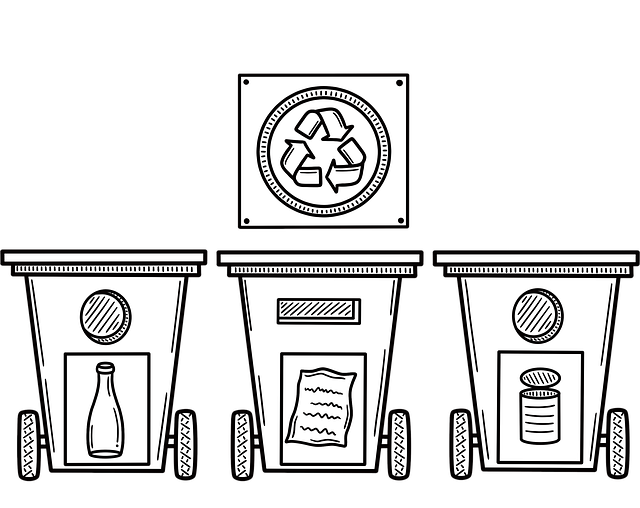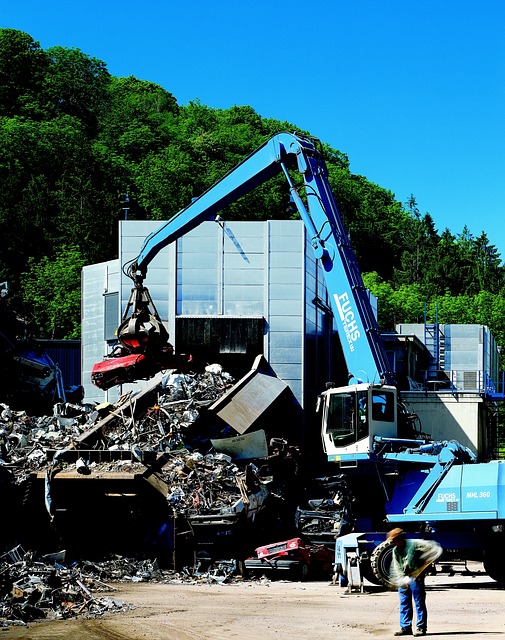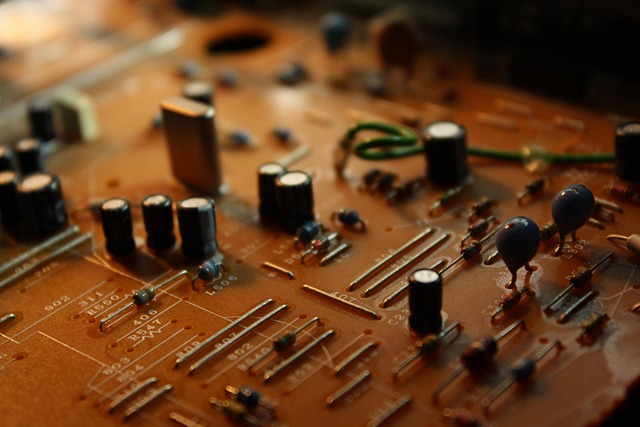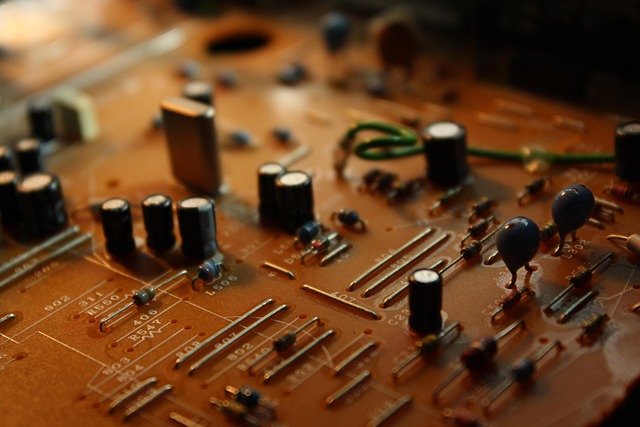Boston grapples with an escalating electronic waste (e-waste) crisis due to the high volume of electronic devices discarded each year. The city must prioritize electronics recycling Boston strategies to mitigate environmental harm caused by toxic materials in e-scrap. Through partnerships, educational initiatives, and innovative technologies, Boston can promote responsible disposal practices, recover valuable resources, and secure a cleaner future for its residents. By focusing on electronics recycling Boston, the city leads global efforts to revolutionize e-waste management and foster a circular economy.
“In the heart of Boston, the issue of electronic waste (e-waste) management has become a pressing environmental concern. ‘Sustainable Tech Garbage Solution’ explores the multifaceted challenge of e-waste in the city and presents innovative strategies for a greener future. From understanding the impact of improperly disposed electronics to highlighting the benefits of recycling, this article navigates effective collection methods tailored for urban areas. We delve into fostering collaboration between businesses and communities, aiming for a circular economy, and conclude with a glimpse into technology’s role in revolutionizing eco-friendly recycling processes within Boston.”
- Understanding the Impact: The Current State of Electronic Waste in Boston
- Benefits of Electronics Recycling: A Sustainable Approach
- Effective Collection Methods for Tech Garbage in Urban Areas
- Building a Circular Economy: Collaboration Between Businesses and Communities
- Future Innovations: Technology Driving Eco-Friendly Recycling Processes
Understanding the Impact: The Current State of Electronic Waste in Boston

In Boston, the growing mountain of electronic waste (e-waste) has become an increasingly pressing environmental concern. With rapid technological advancements and a culture that embraces new gadgets, the city generates significant volumes of electronics recycling materials annually. Unfortunately, proper disposal methods are not always prioritized, leading to severe ecological consequences. The current state of e-waste management in Boston reveals a complex issue; while some progress has been made in establishing drop-off centers for electronics recycling Boston residents and businesses face challenges in implementing effective waste reduction strategies.
The hazardous nature of e-waste, containing toxic materials like lead, mercury, and cadmium, demands safe handling practices to prevent soil and water contamination. Traditional sorting methods can be inefficient, often leading to contaminated batches that require specialized no-sort recycling for tech solutions. To address these issues, Boston must focus on promoting responsible business electronics waste reduction practices and educate the public about the importance of proper e-waste disposal.
Benefits of Electronics Recycling: A Sustainable Approach

The benefits of electronics recycling are numerous, especially as Boston continues to explore sustainable solutions for tech garbage. By participating in proper e-scrap removal and implementing low-cost battery recycling programs, the city can significantly reduce its environmental impact. Outdated electronics often contain valuable materials like gold, silver, and rare earth elements that can be recovered and reused, thereby minimizing mining operations’ detrimental effects on ecosystems and communities.
Moreover, efficient electronics recycling helps to prevent the release of harmful substances into landfills or the environment. Many electronic devices contain toxic components such as lead, mercury, and cadmium, which can contaminate soil and water if not disposed of properly. Doorstep e-scrap removal services make it easier for residents and businesses to responsibly get rid of their outdated electronics, contributing to a cleaner, healthier Boston for current and future generations.
Effective Collection Methods for Tech Garbage in Urban Areas

In urban areas, effective tech garbage collection starts with strategic planning and community involvement. Implementing comprehensive electronic waste (e-waste) management programs is crucial to keeping up with the growing stream of tech discards in densely populated regions like Boston. One successful approach involves collaborating with local businesses, schools, and government entities to organize regular collection events and drop-off points. These initiatives ensure that a wide range of electronic items, from outdated computers and smartphones to small appliances, are properly collected and recycled.
Boston’s electronics recycling centers often offer secure data destruction services, which is essential for businesses looking to protect sensitive information contained in old devices. Additionally, these facilities adhere to strict e-scrap rules, ensuring that hazardous materials are safely handled and recycled according to environmental standards. Workshops and educational programs can further promote responsible tech disposal practices among residents, encouraging them to recycle their electronics for cash or ensure proper secure data destruction while contributing to a sustainable future.
Building a Circular Economy: Collaboration Between Businesses and Communities

In the pursuit of a sustainable future, building a circular economy is paramount, especially in urban centers like Boston where electronic waste (e-scrap) is a growing concern. Collaboration between businesses and communities plays a pivotal role in achieving this goal. By fostering partnerships, companies can implement effective electronics recycling Boston programs that extend product lifespans and reduce the environmental impact of e-waste. Nonprofits supporting electronics recycling initiatives are instrumental in organizing e-scrap collection drives and computer recycling programs, ensuring that old electronics are responsibly disposed of or reused.
This collective effort transcends mere waste reduction; it empowers communities to take charge of their technological future. Through such collaborations, businesses can leverage the expertise and reach of local organizations to engage residents in sustainable practices. The result is a more circular flow of resources, where discarded electronics are transformed into valuable materials for new products, thereby minimizing the need for extractive processes and reducing carbon footprints.
Future Innovations: Technology Driving Eco-Friendly Recycling Processes

The future of sustainable tech garbage solutions lies in innovative technologies that revolutionize electronic waste (e-waste) management. Boston, a hub for technological advancement, is at the forefront of developing eco-friendly recycling processes. Advanced sorting systems, powered by artificial intelligence, can accurately identify and categorize different types of e-scrap, ensuring efficient and effective recycling. These systems not only reduce human error but also increase the recovery rate of valuable materials like precious metals, plastics, and glass.
Furthermore, new methods are emerging to tackle the challenge of toxic electronics components. Through chemical processes and advanced treatment techniques, it’s becoming possible to safely dispose of hazardous substances found in electronic devices. By integrating these cutting-edge technologies, Boston is setting an example for corporate social responsibility (CSR) recycling programs worldwide. Learn about e-scrap handling and embrace these game-changing innovations to create a greener future, ensuring the responsible disposal of toxic electronics components while minimizing environmental impact.
Boston’s commitment to addressing its electronic waste problem through sustainable tech garbage solutions is both commendable and necessary. By understanding the current state of e-waste, recognizing the benefits of electronics recycling, implementing effective collection methods, fostering collaboration within communities and businesses, and embracing future innovations in eco-friendly processes, the city can lead by example in creating a circular economy that minimizes environmental impact and promotes a healthier planet for generations to come. Electronics recycling Boston is not just about disposing of old tech; it’s about empowering a sustainable future.











